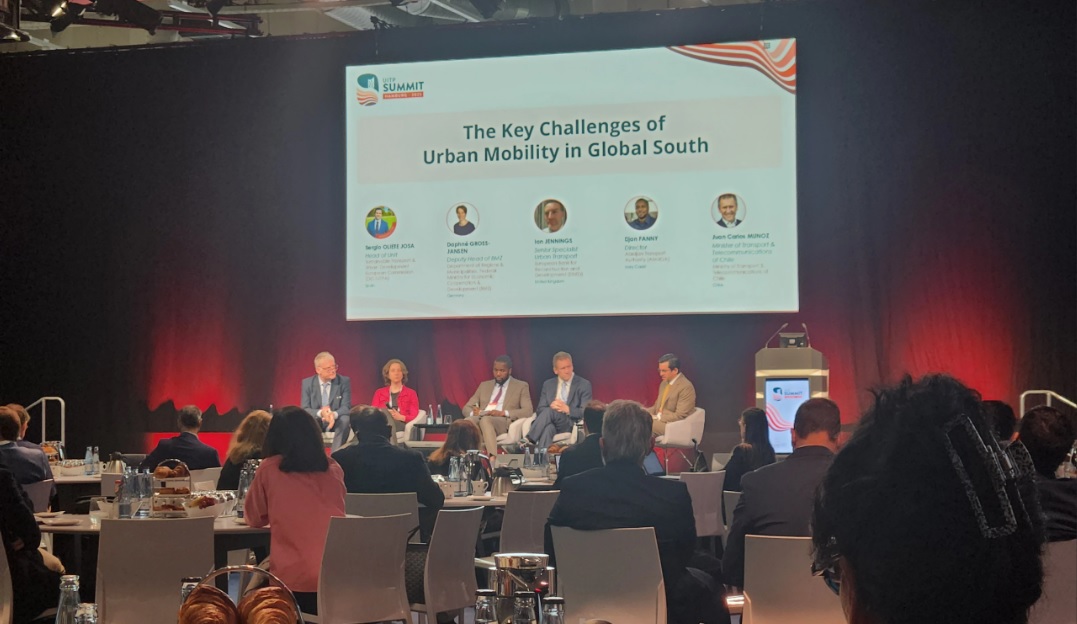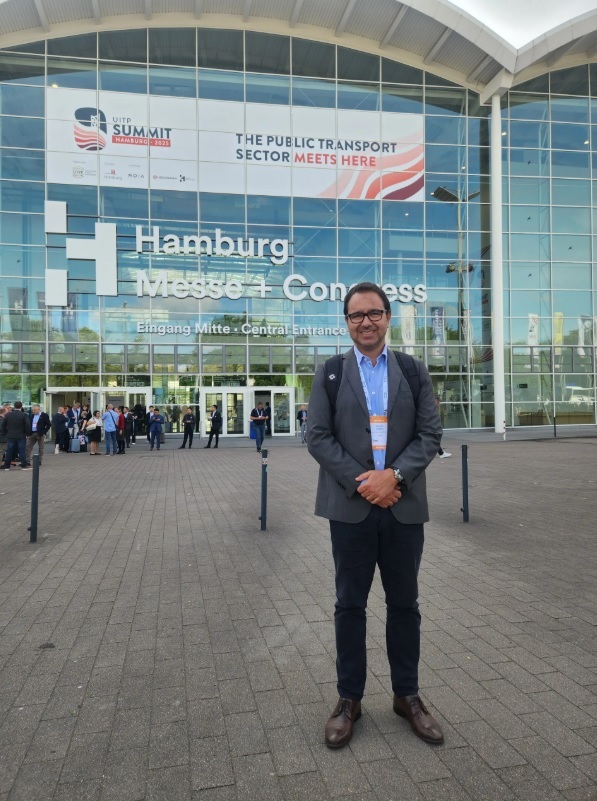TCU Participates in the 2025 Summit of the International Association of Public Transport
By Secom / Serint

A delegation from the Department of Government Audit for Infrastructure (SecexInfra) of the Brazilian Federal Court of Accounts (TCU) participated in the 2025 Summit of the International Association of Public Transport (UITP), held from June 15 to 18 in Hamburg, Germany. The event combined a technical congress and an exhibition fair that showcased innovations and trends shaping the future of urban mobility and public transportation.
During the event, innovative mobility solutions were spotlighted. This included technologies like urban and intercity electric buses, light rail vehicles (LRVs), and metro systems, alongside advancements in autonomous, shared, and multimodal mobility. Attendees experienced autonomous vehicles, on-demand services, and shared car, bicycle, and electric scooter systems firsthand, through the exhibition and UITP's technical site visits.
 The Court was represented by auditor Marcelo Ribeiro, Director of the 2nd Division of Audit Department for Urban and Water Infrastructure (AudUrbana), part of SecexInfra. The event gathered public transport experts from over 110 countries, including UITP President Renée Amilcar and UITP Latin America Manager Eleonora Pazos.
The Court was represented by auditor Marcelo Ribeiro, Director of the 2nd Division of Audit Department for Urban and Water Infrastructure (AudUrbana), part of SecexInfra. The event gathered public transport experts from over 110 countries, including UITP President Renée Amilcar and UITP Latin America Manager Eleonora Pazos.
Several countries shared their experiences, with Chile highlighting its methodology used for the latest expansion of Santiago's metro system, where contracts were executed with no cost or time overruns compared to the original estimates.
Other featured initiatives included urban space redevelopment projects in London, Vienna, Brussels, Lyon, Barcelona, Hamburg, and Amsterdam, which prioritized replacing private car usage with public and shared or active mobility—indicating a trend that will shape future urban mobility planning in major cities around the world.
The summit also showcased strategies to restore ridership levels in public transport systems, particularly in the aftermath of the COVID-19 pandemic. Examples from the metro systems of Lisbon and Los Angeles were shared, both of which are now transporting more passengers than before the pandemic. These experiences focused on improving service quality and addressing public concerns related to safety within and around transit systems.
Innovations were also presented for operating multimodal transport systems, with emphasis on variable pricing, open-loop payment systems, and the integration of traditional modes with shared, micromobility, or active mobility solutions. On-demand mobility proposals were highlighted, particularly for low-density areas.
The Summit emphasized the fundamental principle of public transport: putting people first. Mobility must be accessible, efficient, sustainable, and safe for everyone, regardless of socioeconomic status or physical condition. This focus is aligned with UITP’s "People First" strategy, which values social aspects such as diversity, safety, and fare affordability.
The event highlighted the essential principle of public transport, prioritizing people and ensuring every citizen’s right to come and go through a system that must be accessible, efficient, resilient, sustainable, and safe for all, regardless of their socioeconomic or mobility conditions.
Reinforcing that urban mobility's purpose is to move people, not just vehicles, various initiatives to fight exclusion in public transport were presented. These included Bogotá, Colombia's cable car system and Seoul, South Korea's on-demand services for individuals with reduced mobility or special care needs, alongside the global concern for affordable fare policies.
The TCU’s participation in the event fosters engagement with the multiple stakeholders involved in urban mobility and public transportation, especially UITP, which in 2025 celebrates its 140th anniversary and brings together more than 1,900 organizations related to passenger public transport worldwide. This will allow TCU, through SecexInfra, to further deepen its understanding and role in urban mobility.